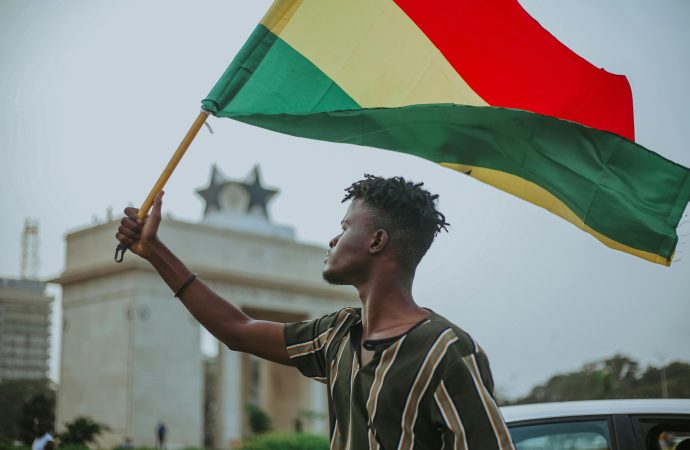Africa, a continent rich in diversity, culture, and natural resources, has also been the epicenter of numerous political conflicts. These conflicts have had far-reaching implications for the continent’s development, stability, and the well-being of its people. This article aims to provide a comprehensive analysis of political conflicts in Africa, examining their causes, impacts, and potential
Africa, a continent rich in diversity, culture, and natural resources, has also been the epicenter of numerous political conflicts. These conflicts have had far-reaching implications for the continent’s development, stability, and the well-being of its people. This article aims to provide a comprehensive analysis of political conflicts in Africa, examining their causes, impacts, and potential solutions. We will also present a comparative table and an analysis table to elucidate these issues further.
1. Introduction to Political Conflicts in Africa
Political conflicts in Africa are characterized by disputes between political entities, including governments, rebel groups, and ethnic factions. These conflicts can manifest as civil wars, insurrections, and regional disputes. The roots of these conflicts are often complex, involving historical grievances, ethnic tensions, resource competition, and political corruption.
2. Historical Context and Causes
2.1 Colonial Legacy
The colonial period left a profound impact on Africa, with arbitrary borders drawn by European powers often splitting ethnic groups and creating states with little regard for existing social structures. This legacy has contributed to ongoing conflicts as newly independent African nations grappled with fragmented societies and weak national identities.
2.2 Ethnic Tensions and Tribalism
Ethnic diversity in Africa, while a strength, has also been a source of conflict. Tribalism and ethnic favoritism have been exploited by political leaders to gain and maintain power, leading to tensions and violence between different ethnic groups.
2.3 Resource Scarcity and Competition
Africa is rich in resources, but this wealth has often been a double-edged sword. Competition for resources such as oil, minerals, and arable land has fueled conflicts, as various groups vie for control over these valuable assets.
2.4 Political Corruption and Poor Governance
Corruption and poor governance have exacerbated political conflicts in Africa. Weak institutions, lack of transparency, and authoritarian practices have often led to political instability and conflict, as marginalized groups challenge corrupt regimes.
3. Case Studies of Major Conflicts
3.1 The Sudanese Civil Wars
The Sudanese Civil Wars, including the Darfur conflict and the South Sudanese Civil War, are prime examples of how ethnic tensions and resource competition can escalate into full-scale conflicts. The North-South divide, along with competition over oil-rich regions, played a significant role in these conflicts.
3.2 The Rwandan Genocide
The Rwandan Genocide of 1994 is one of the most tragic episodes in Africa’s recent history. The conflict was driven by long-standing ethnic tensions between the Hutu majority and the Tutsi minority, exacerbated by political manipulation and social divisions.
3.3 The Libyan Civil War
The Libyan Civil War, which began in 2011 following the fall of Muammar Gaddafi, showcases how the collapse of a regime can lead to power struggles among various factions. The ensuing conflict has seen multiple armed groups vying for control, leading to prolonged instability.
3.4 The Congolese Wars
The Congo Basin has witnessed multiple conflicts, including the First and Second Congo Wars. These wars have been fueled by ethnic divisions, resource exploitation, and regional interference, resulting in widespread devastation and loss of life.
4. Impacts of Political Conflicts
4.1 Humanitarian Crisis
Political conflicts in Africa have led to severe humanitarian crises, including large-scale displacement, loss of life, and breakdowns in health and education systems. Refugee camps and internally displaced persons (IDPs) face dire conditions, exacerbating the humanitarian situation.
4.2 Economic Disruption
Conflicts disrupt economic activities, damage infrastructure, and undermine development efforts. The destruction of agricultural land, mining operations, and trade routes can have long-lasting effects on local economies and livelihoods.
4.3 Regional Instability
Conflicts in one country often spill over into neighboring states, leading to regional instability. Cross-border insurgencies and refugee flows can strain relations between countries and create broader security challenges.
4.4 Social Fragmentation
Conflicts can exacerbate social divisions, entrenching ethnic and tribal rivalries. This fragmentation can make post-conflict reconciliation and nation-building efforts more challenging, hindering long-term peace and stability.
5. Efforts Towards Conflict Resolution
5.1 Peacekeeping Missions
The African Union (AU) and United Nations (UN) have been involved in peacekeeping missions across the continent. These missions aim to stabilize conflict zones, protect civilians, and facilitate peace processes.
5.2 Diplomatic Interventions
Regional organizations and international actors often mediate conflicts, negotiating peace agreements and promoting dialogue between conflicting parties. Successful diplomatic interventions have led to the resolution of some conflicts and the establishment of frameworks for peace.
5.3 Development and Reconstruction
Post-conflict reconstruction efforts focus on rebuilding infrastructure, restoring economic activities, and addressing the root causes of conflicts. Development initiatives aim to promote stability and prevent the recurrence of violence.
5.4 Promoting Good Governance
Strengthening institutions and promoting good governance are critical for preventing and resolving conflicts. Efforts to enhance transparency, reduce corruption, and foster inclusive political systems can contribute to long-term stability.
6. Comparative Table of Major Conflicts in Africa
| Conflict | Main Causes | Key Actors | Resolution Efforts | Current Status |
|---|---|---|---|---|
| Sudanese Civil Wars | Ethnic tensions, resource competition | Sudanese government, SPLM, JEM | Peace agreements, international mediation | South Sudan independent; Darfur remains tense |
| Rwandan Genocide | Ethnic divisions, political manipulation | Hutu extremists, Tutsi rebels | International tribunals, reconciliation efforts | Genocide resolved; ongoing reconciliation |
| Libyan Civil War | Regime collapse, factional power struggles | Various armed groups, UN, AU | UN-led peace talks, ceasefires | Ongoing conflict with multiple factions |
| Congolese Wars | Ethnic divisions, resource exploitation, regional interference | Congolese government, various militias | International peacekeeping, peace agreements | Ongoing instability and violence |
7. Analysis Table: Factors Influencing Political Conflicts
| Factor | Description | Impact on Conflict | Examples |
|---|---|---|---|
| Colonial Legacy | Arbitrary borders, divided ethnic groups | Increased ethnic tensions and fragmented societies | Sudan, Rwanda |
| Ethnic Tensions | Rivalries and divisions between ethnic groups | Fueling violence and discrimination | Rwanda, Kenya |
| Resource Competition | Struggles over valuable resources like oil and minerals | Escalates conflicts and creates power struggles | Congo, Sudan |
| Political Corruption | Lack of transparency and accountability | Weakens governance and fuels unrest | Zimbabwe, Nigeria |
8. Conclusion
Political conflicts in Africa are multifaceted and deeply rooted in historical, ethnic, and resource-related issues. While efforts towards conflict resolution have had some successes, the continent continues to face significant challenges. Addressing these conflicts requires a holistic approach that includes diplomatic efforts, peacekeeping, development initiatives, and good governance. By understanding the underlying causes and impacts of these conflicts, stakeholders can work towards more effective solutions and a more stable future for Africa.

















